What Can Students and Faculty Learn from Exams?
Exams are some of the most common tools for gathering evidence of how much students have learned, but they can also be opportunities to learn, both for students and for us.
For students, exams can be opportunities to learn when we assign exam wrappers or other reflections afterward. Exam wrappers help students think critically about their own learning, so that they can learn more effectively in the remainder of the class and in future courses. These wrappers help students to learn from their errors and further consolidate the skills they’re developing. The most fruitful wrappers ask students to do two things:
- Review their work and do some error analysis, identifying what they missed and where the information related to those questions or problems can be found. If students have an opportunity to correct their errors, they should also be asked to explain why the correct answer is the right response, or how the work could be improved. They need to identify what major concepts they had trouble with, so they can go back and fill in the gaps in their learning. We can even encourage them to form study groups to work on this.
- Reflect on how they prepared for the exam. How much time did they invest? What did studying mean—reading the material, outlining, reviewing notes, answering practice questions? If their strategies didn’t work, how do they plan to prepare differently next time? Less successful students are often those who read over their notes repeatedly, rather than grappling with sample questions. They may be investing enormous amounts of time to little avail, but you can point them toward guides to effective study habits, like Dr. Chew’s. Students should also look for patterns in their errors: did their mistakes reflect miscalculations, misreading questions, etc.?
Some faculty don’t record an exam grade until the wrapper is completed; some use them as in-class assignments; some administer a second exam on the same material after a week and average the two grades or let students use the wrapper to earn back a limited number of points they missed. Some even give two-stage exams, which are another great strategy for turning exams into learning opportunities: In the first stage, students take the exam individually, and in the second, they take the same exam or a portion of it in a small group, where they get to discuss and justify their answers. The second stage leverages students’ motivation to do well on the exam to promote critical thinking and knowledge construction.
Just as students can learn by reflecting on their exam performance, so can faculty. Students’ answers to the exam questions are rich data we can use to better understand which knowledge and skills they seem to be gaining and where they are tending to struggle. For example, if many students get the same questions wrong, we can work to determine what the problem might be, so that we can make adjustments. One possibility is that students didn’t understand the question. We might need to reword that question or rewrite that problem so that students are better able to interpret what it’s asking them to do.
Sometimes, instead of an issue with the way the question is written, students tending to get a certain question wrong can be a sign of a lack of alignment of the components of the course. We can ask ourselves, does the in- and out-of-class work provide adequate opportunities for students to get the practice and feedback needed to master the relevant material? If not, we can make adjustments to either the exam (changing the question or problem to align more closely with what students are learning in the course), or to the coursework leading up to the exam so that students have a fair shot at success. Because the stakes are high for students, exams are not the right place for them to encounter a question or problem type for the first time. They should have already attempted, not the same problem, but problems of that type that require a similar thinking process, in other coursework. An exam should be an opportunity for students to show us what they now know or can now do because of what they’ve been learning and practicing in the course. When we reflect on students’ exam performance, and our exam and course designs, we can get a better sense of whether our assessments are measuring what we intend for them to measure.
If you’d like some support to review an exam, and to discuss the questions and the coursework leading up to the exam, please contact us at pro-teaching@fsu.edu. We look forward to working with you!
FALL READING GROUPS
This semester the Center for the Advancement of Teaching is offering the following four faculty reading groups and one reading group for TAs. Each group will meet once a week for three weeks to discuss the books in sections. We hope you can join us! Please register here.
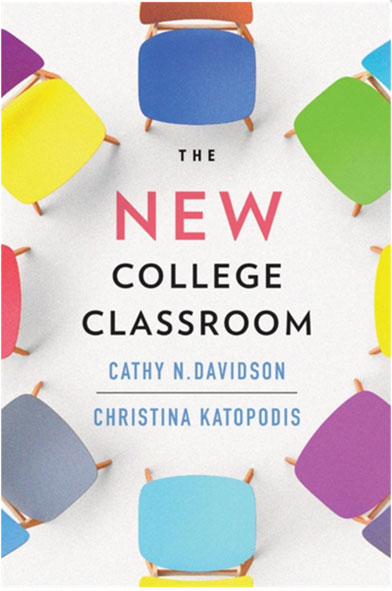
Thursdays: 9/28, 10/5, 10/12
2:00–3:30 p.m. in 432 DIF
Print copy, delivered through interoffice mail
Davidson’s new book is an inspiring and practical guide that helps faculty bring recent research on learning to bear on their own teaching. Participants will generate plans for implementing multiple strategies in their own classrooms to create dynamic learning environments, exciting learning experiences for students, and more gratifying teaching experiences for themselves.
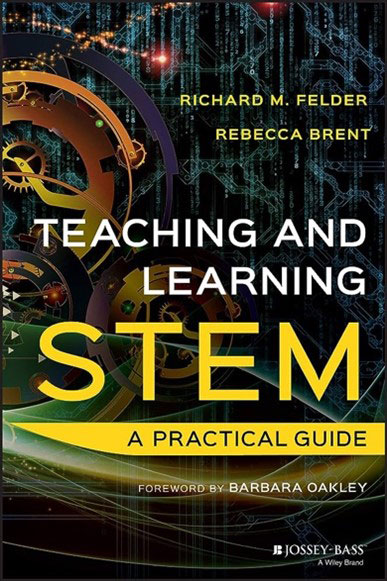
Thursdays: 10/19, 10/26, 11/2
10:00–11:30 a.m. in Dirac Library Conference Room
Print copy, delivered through interoffice mail
Would you like to incorporate more active learning into your STEM course, but are unsure where to start? Richard Felder and Rebecca Brent provide practical, evidence-based strategies for designing and teaching STEM courses to promote student learning and retention. Drawing from decades of research and experience, the authors provide concrete suggestions of evidence-based methods you can implement right away, without major preparation time, brought to life by rich examples from college courses across STEM disciplines and levels.
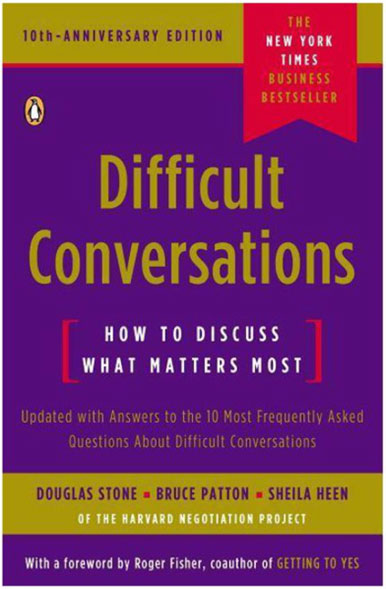
[Closed – This group is full.]
Fridays: 9/29, 10/6, 10/13
2:00–3:30 p.m. in DIF 432
Print copy, delivered through interoffice mail
Whether in or out of class, teaching sometimes involves having difficult conversations. We might have one in office hours with a student about a grade, or one in class about a sensitive topic, or even one with a colleague about changes to the curriculum. In this book, authors from the Harvard Negotiation Project share strategies for better understanding the underlying structures of all difficult conversations so that we can have rather than avoid them, stay more grounded during them, and make them as productive as possible.
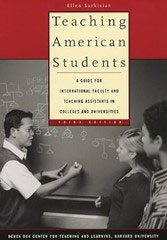
Tuesdays: 9/26, 10/3, 10/10
12:00–1:30 p.m. Meeting site: TBD
Electronic materials
Join our reading group for international faculty navigating American higher education. Explore the intricacies of teaching American college students with carefully selected book excerpts and articles. Gain insights into cultural nuances, teaching strategies, and fostering inclusion in the classroom. Share experiences and ideas with a supportive community of educators. Whether you’re a seasoned professor or new to American academia, this group will enhance your teaching skills and connect you with peers. We invite you to join us for an enriching educational journey that empowers you to make a lasting impact on your students.
Click here to explore the book.
Click here to watch the video accompanying the book.
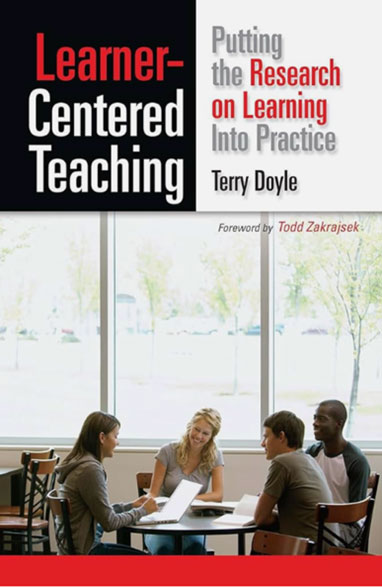
Thursdays: 10/5, 10/12, 10/19
11:00–12:30 p.m. in DIF 432
E-book, available for free through FSU’s libraries
Note: This group is for TAs (graduate students) only.
Recent decades have brought a wealth of research on learning and cognition. These developments are gradually making their way into work on best practices for the college classroom. Doyle’s Learner-Centered Teaching is a practical, comprehensive guide to strategies for making effective use of the research. When we adjust our classroom focus from teaching to learning, we make our own work more gratifying, and we can enhance our students’ learning experience as well as their mastery of material. In this group, graduate teaching assistants will discuss Doyle’s text and specific strategies and activities for enriching our own classrooms.



